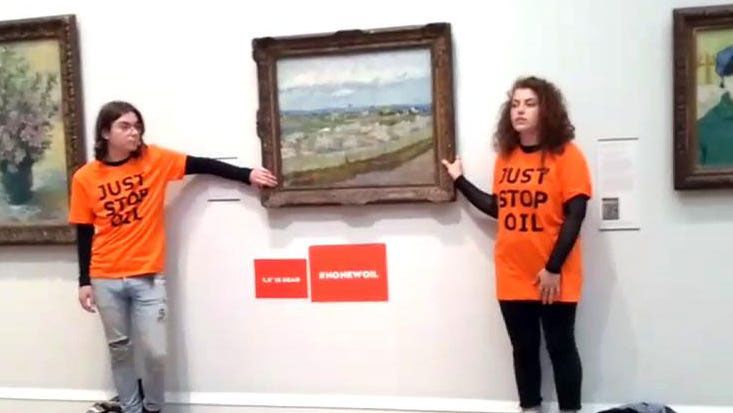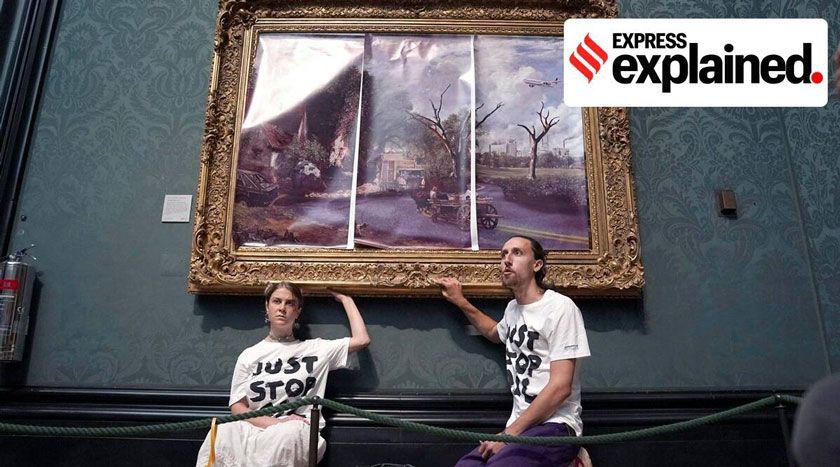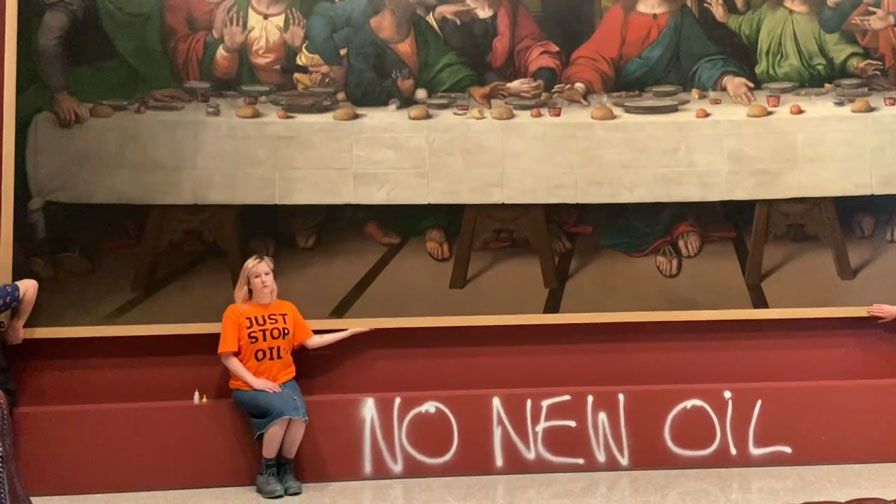Just Stop Oil activists have been glueing themselves to famous paintings across the UK, from Glasgow to London. The paintings included Van Gogh’s Peach Tree in Blossom and Giampietrino’s The Last Supper. Most of these stunts occurred without any damage, except for some minor damage to The Hay Wain.

“The Hay Wain suffered minor damage to its frame and there was also some disruption to the surface of the varnish on the painting, both of which have now been successfully dealt with,” a National Gallery spokesperson said.
The group’s strategies are always provocative and it’s intentional: they mean to capture the public's attention, for better or worse.
“I'm an art student, myself, and it does sometimes feel like the art world views itself as existing in isolation from the rest of the world. But, you know, the climate crisis affects all of us,” one protester said.

They also stormed the track of the British Grand Prix in March, which drew support from Lewis Hamilton. Likewise, they caused a stir at a Premier League Football game.
“I’m here because our government plans to license 40 new UK oil and gas projects in the next few years,” said Hunt, a 23-year-old activist. “This makes them complicit in pushing the world towards an unlivable climate and in the death of billions of people in the coming decades.”
The group says that tax breaks and subsidies—around 12 billion euros a year—going towards fossil fuels enable and encourage organizations which are seriously harming the planet. Public transport, lowering energy demands and clean energy are some of their ideas and demands.
The group was founded in December of last year with the goal of pressuring the UK government to end all fossil fuels deals. The organization says it won't stop until the government takes meaningful action to move toward sustainable energy sources.
“Allowing the extraction of new oil and gas resources in the UK is an obscene and genocidal policy that will kill our children and condemn humanity to oblivion. It just has to stop,” Just Stop Oil said. “If we continue down our current path it will destroy families and communities. We will face the starvation and the slaughter of billions of the poor—and the utter betrayal of our children and their future.”

Why the Royal Academy of Arts or National Gallery? Why art institutions at all?
Because art is political, institutions hold power, and policies won’t change without those in power feeling pressure to do so.
Because there is a long history of deeply impactful protest art and disruptive artists that have been divisive and despised.
Because it works. If it wasn't controversial you wouldn't be reading about it right now.
Many have popped up to say their actions are extreme. The group says that the outrage towards them can be channelled and used constructively to enact change. This is the question the group is posing: if you are so angry at us for disrupting football games and your day at the museum, imagine how angry you ought to be about your future being stripped away.
“I want a future and I want my government to stop trying to kill me,” one activist said in an interview.
It’s clear that neither statistics and scientific predictions nor impassioned speeches and pleas will bring about the kind of large-scale emergency responses necessary to stop the ongoing climate crisis. Climate Action and Affordable and Clean Energy are amongst the United Nations Sustainable Development Goals for good reason.
“Climate collapse will mean the end of workers’ rights, women’s rights, all human rights. It is already the greatest injustice visited on the global south in human history,” Just Stop Oil stated. “If you are not in resistance you are appeasing evil. If you continue to stand by, you are betraying 200 years of struggle and the sacrifice of those that came before us.”
Learn more about Just Stop Oil here.
